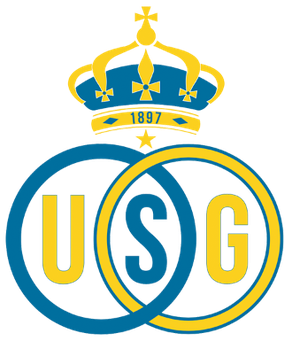Union St.Gilloise FC, a name that echoes with history and ambition, has emerged as one of the most exciting stories in Belgian football today. With a proud past intertwined with resilience and modern strategies rooted in youth development and tactical innovation, Union St.Gilloise FC is quickly establishing itself as a powerhouse capable of challenging traditional giants. This article explores the club’s rich history, its recent resurgence, tactical philosophies, key players, fan culture, and future prospects — all painting a comprehensive picture of why Union St.Gilloise FC is becoming Belgian football’s rising power.
The Historical Roots of Union St.Gilloise FC and Its Revival
Understanding the journey of Union St.Gilloise FC requires delving into its extensive history, periods of decline, and the remarkable revival that has captured the imagination of football enthusiasts across Belgium and beyond GOOD88.
Origins and Early Glory Days
Union St.Gilloise was founded in 1897, making it one of the oldest clubs in Belgium. Its early years were marked by dominance in the Belgian league, particularly during the 1900s and 1920s, when they secured multiple national titles. Known for their attacking style and exceptional organization, the club quickly earned a reputation for excellence. Their home ground, the Stade Joseph Marien, became a fortress where legendary players showcased their skills, inspiring generations of fans.
Despite these glorious years, the club faced a gradual decline due to financial difficulties, leadership changes, and evolving competition dynamics. By the late 20th century, Union St.Gilloise had fallen into relative obscurity, languishing in lower divisions and struggling to recapture former glory. This period was characterized by instability but also set the stage for a determined revival.
The Resurgence in the 21st Century
The 2000s marked a turning point for Union St.Gilloise FC. A new ownership group with a clear vision aimed to restore the club’s stature. Investment in youth facilities, strategic recruitment, and community engagement rejuvenated the club’s identity. Notably, the promotion to the Belgian Pro League in 2020 was a watershed moment, signaling a return to top-flight football after decades away.
This resurgence has been driven by a blend of tradition and innovation. The club’s management prioritized sustainable growth, fostering local talent while bringing in experienced players to stabilize performance. The passionate fan base, resilient through years of hardship, played an essential role in supporting this renaissance.
The Impact of Contemporary Management and Strategy
Modern management practices, data-driven scouting, and emphasis on youth development have been pivotal in the club’s revival. The appointment of progressive coaches who focus on possession-based football and tactical flexibility helped them outperform expectations. Furthermore, the club’s commitment to community outreach and building a strong club culture created a sense of belonging that resonated internally and externally.
Union’s success is not only measured by results but also by elevating the club’s profile nationally and continentally. Their recent performances in European competitions, such as the UEFA Europa Conference League, Union St.Gilloise FC have garnered attention and respect, positioning the club as an emerging force in European football circles.


